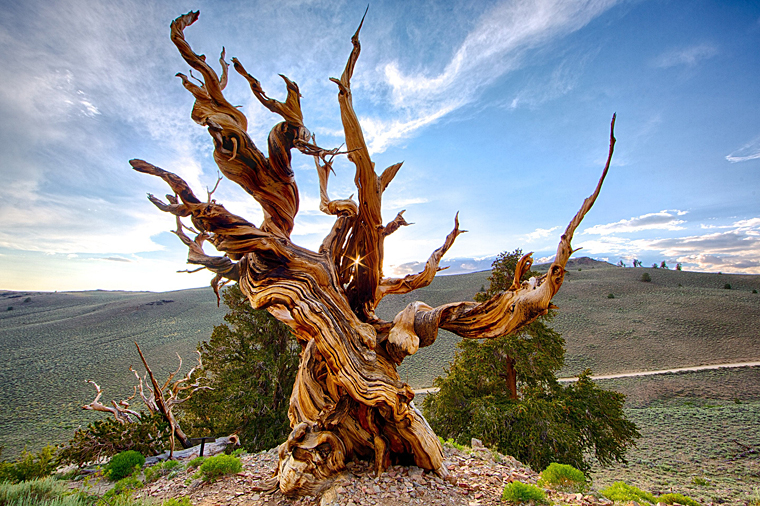
In our modern culture, longevity has come to mean a lengthy life, and modern medicine has added some veracity to the possibility of extending human life to perhaps hundreds of years. Diet, stress, exercise, antibiotics, genetics; at one time or another all of these have been identified as having impact on life span. Some people have always lived long lives, and the secret to long life has yet to be specifically determined.
Not long ago, a Bowhead whale was killed by Eskimos in Alaska during a traditional whale hunt. While butchering the whale for food, an old harpoon point embedded in the whale’s neck was discovered. The age of the harpoon point indicated that the whale was probably 120 years old; indications are that bowhead whales can live for more than 200 years. The death of this whale reminds us that great age is something rare and special, and we naturally revere it.
Of course, many trees enjoy long lives as well. The oldest living bristlecone pine, named “Methuselah,” has been dated around 4,789 years old. Many of the oldest oaks in this area are 400 to 600 years old, and may well live for another 500 years.
Extending the life span of people, our conventional notion of longevity, raises many ethical and cultural questions, such as who gets to live a long life, how is the decision made and by whom? What are the economic and social consequences of people living far longer lives? Is great age itself the goal, or the goal something else?
For thousands of years, people have thought, spoken and taught about longevity. The ancient Taoist teachings speak of longevity, and outwardly it would appear that they too are about the extension of life. Yet, as in most wisdom traditions, the Taoist works rarely reveal the full meaning of things explicitly. While health and longevity are identified as goals, the deeper Taoist meaning more likely resides in the proper establishment of one’s relationship to the world, to others, and the essential nature of living life completely.
We have all experienced the still and timeless quality of life that emerges when we make time to fully savor experience, feelings or emotions. The engaged mind and open heart can stretch mere moments so that they feel like hours or, conversely, make hours feel like minutes; boredom and depression can make time stand nearly still. The first bite of a sweet, ripe strawberry seems to last forever, and who among us can keep track of time while in the throes of love?
Thus it appears, as is so often the case with the self-centered materialist view of things, that our explicit notion of longevity as merely gaining long years of life is relatively insignificant. None of us knows precisely how long we will live, and this day may in fact be our last. When we live in each moment completely, digesting everything entirely so there is no trace left, the truth is revealed: that genuine longevity exists within the simple awareness of each and every precious moment.